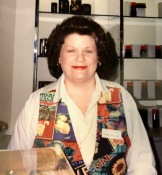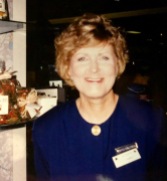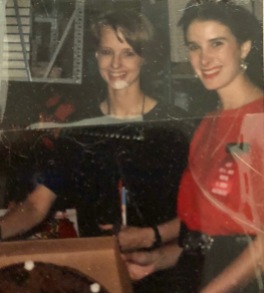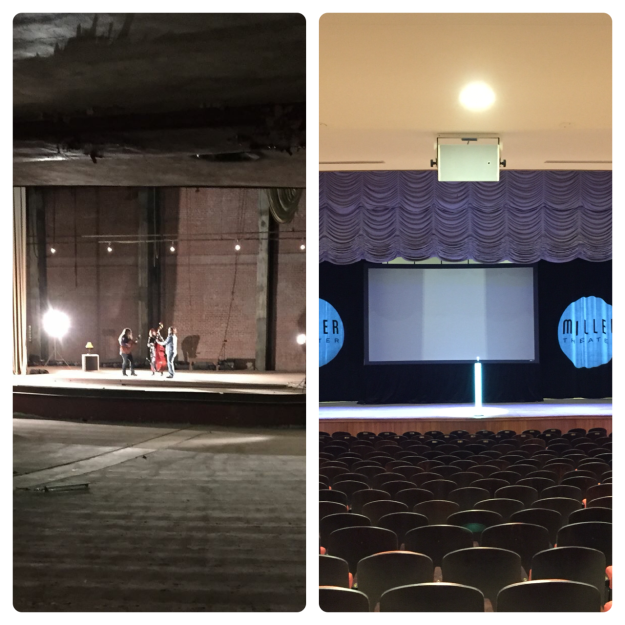I’ve never been a fan of politics. I’ve kept my opinions to myself, steering away from political debates in the same way we’ve all been warned to eschew chats about sex and religion at the dinner table. This avoidance is wise, given my corporate PR position and leadership roles with various organizations. You can’t offend anyone if you don’t foray into the arena at all.
Lately, however, I’ve been dipping my toe into the local political scene, and have decided that there is too much at stake to continue to play it safely on the sidelines. When it comes to next week’s Mayoral election, a quote from the movie Mulan keeps popping into my head: “A single grain of rice can tip the scales,” says the Emperor of China. “One man may be the difference between victory and defeat.”
Another quote keeps popping into my head, advice from an old friend with tremendous political expertise: “Be careful when you show your cards in the political poker game: if you decide to go public with your support of a candidate, make damn sure you back a winner.”
The problem with this advice is that you cannot always be sure. Some races are close, and they require our involvement. They seem to be calling for the grain of rice. Sometimes, for the good of the cause, you have to stick your neck out there, even though you cannot be 100% sure they will win. You risk alienating people who support a different candidate, and you risk aligning your personal brand with someone who may not be victorious on Election Day.
Here’s the catch: for communities to prosper, we cannot all sit quietly with our opinions to ourselves. There are donations to be made, signs to be posted, events to be attended, flyers to be distributed, voters to be educated. This is especially true when the competition is tight, and victory can come down to a handful of votes.
From the time I heard that Hardie Davis was running for Mayor, I knew he would have my vote. I am a huge Mayor Deke fan, and want his successor to build on that momentum- a unifier, an articulate ambassador for Augusta, someone we can trust to represent us. What I didn’t know at the time was that I would become involved, and exposed. I have officially shown my cards. And there was one issue that pushed me over the edge. SPLOST.
I am in support of the Special Purpose Local Option Sales Tax that is on the same ballot as the Mayoral race. It is a similar package to what has been given voter approval in the past, but this one is tarnished with controversy sparked by misinformation. I am completely convinced that there are Mayoral candidates who refuse to support it simply because they think the public has issues with it, and are afraid to make a stand. Hardie Davis is not afraid; he is informed and supportive. The day the Augusta Chronicle announced that he was the lone SPLOST advocate of the 5 Mayoral hopefuls, I immediately grabbed my purse and made an online donation to his campaign. I was in.
My decision to publicly support Hardie was reinforced at tonight’s Mayoral debate, presented by the Augusta Richmond County Committee for Good Government. In a standing-room only crowd at the Julian Smith BBQ pit, the audience filled with a Who’s Who in politics, Hardie not only held his own, but shined above the rest. He so impressed the crowd that voting members of the Good Government Committee decided to endorse him as their official candidate. But I get ahead of myself. Here’s the scoop on the debate:
I can go ahead and help you eliminate Charles Cummings and Lori Myles, and not just because their numbers are low in the polls. Mr. Cummings, who was difficult to understand, did manage to get the crowd laughing, although not in a good way. At one point, he announced that if elected, he would hold all city commissioners accountable, even if it meant giving them a “report card” on their performance. At his mention of the promise to “hold their feet to the fire”, I was quick to look over at commission members in the audience just in time to witness the nonplussed expressions on their faces. I am going to go out on a limb here and say that it would be difficult for Mr. Cummings to build consensus among the Commissioners with that tactic.
I don’t have much to say about Lori Myles- oops, sorry – DOCTOR Lori Myles, who made reference to her advanced education so many times that I began to wonder if it was an academic competition instead of a political one. She seemed angry and defensive and preachy. I tried to picture her making local speeches and kissing babies, and the images just wouldn’t surface. She is the only person who mentioned SPLOST all evening, but there was no love behind her words. She also made a comment about the city running on a deficit for the past 5 years, an error which Hardie Davis corrected.
Alvin Mason had many supporters in the crowd, and they became quite enthusiastic when he let it be known that if you are looking for a female in office, you might as well vote for him because his Mom is going to be an integral part of his leadership. Mr. Mason actually did quite well in tonight’s event, smiling often and demonstrating an astute mastery of the political charm needed for the Mayoral position. Unfortunately, he has some crazy idea about the Riverfront levee (one that the US Army Corps of Engineers would never allow) and is anti-SPLOST, so he’s off my list. I’m also unsure why he feels he is the only one of the 5 candidates with the “skill-set to sign contracts, something only the Mayor can do.” Overall, a decent performance, but he too is low in the polls and unlikely to be a major contender.
Which leaves me to the 2 top contenders, Hardie Davis and Helen Blocker-Adams. Blocker-Adams has had quite an eventful week in her campaign. She received the endorsement of The Augusta Chronicle, and the next day was blasted by callers on the Austin Rhodes radio show for her personal financial instability. (Bankruptcy, foreclosure, bounced checks, repo, etc- the full package.) Critics question her ability to be a steward of the city’s finances if she cannot manage her own. Blocker-Adams says that her financial troubles are so common that today’s news actually “aligns her with 99% of the population” of this community. I don’t know about you, but I prefer not to be lumped into that category.
I know Helen, who is a nice person and passionate volunteer for the community, but I’m not convinced she has the experience, leadership skills, or polish to represent us on a global stage-which, let’s face it, we are on as a result of the Masters. I have no reservations that Hardie and Evett Davis could mingle with visiting dignitaries, business execs considering Augusta for their expansion, or other leaders interested in collaborating with our community. Furthermore, I disagree with Blocker-Adams promise that all city employees should get a raise because a) that’s not her decision b) we are in budget crisis mode and c) there are 2,600 employees. What are the odds that they are all doing a good enough job to warrant a raise?
Speaking of 2,600 employees, do you know how I was able to easily whip out that figure? Because Hardie Davis mentioned the number when discussing city finances. One of his strengths for the night was his use of facts to make his point. He presented himself as confident, well-spoken and intelligent. In addition to the HR stats, he also tossed out specifics such as the incompleted Highway 56 and Windsor Road projects, the 16.5 acres of land affiliated with Riverfront issues, the importance of private investment, the potential for Technology Square, and the 31,000 students who need to not only succeed in their local education, but also to have a reason to live and work here after graduation.
Hardie said that the role of government is to promote the well-being of its citizens. His vision makes sense to me, and I am confident that he can build on Mayor Deke’s great progress. If Hardie can be the grain of rice that tips the scales for Augusta’s success, then perhaps we can be inspired to be the grain of rice that tips the scales for his campaign and for SPLOST on May 20. It’s too important to sit back and be quiet. I might even bring it up at the dinner table.































